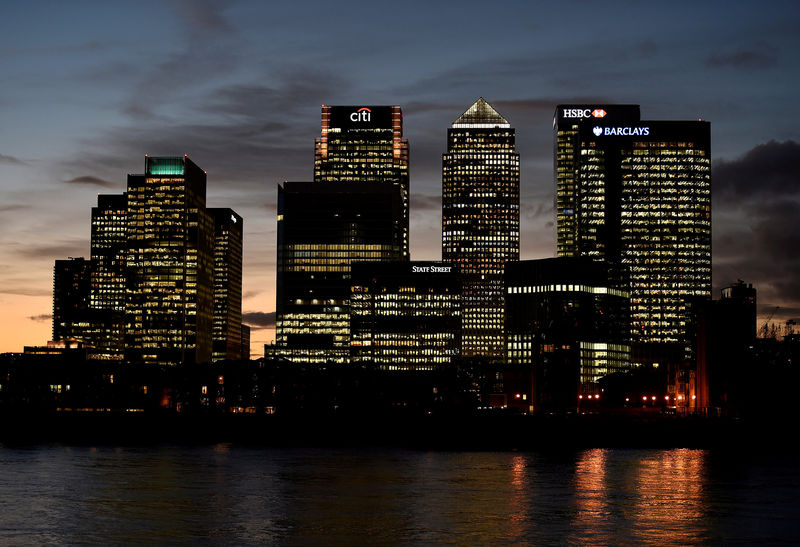By Lawrence White and Andrew MacAskill
LONDON (Reuters) - British bank shares fell on Friday as investors priced in the likely negative impact on the sector of Prime Minister Theresa May's failure to win a majority in a snap election.
The resulting hung parliament threatens to derail talks over Britain's exit from the European Union and dampen consumer confidence, which could puncture a banking sector that many analysts believe is already overextended.
Britain's financial sector had pinned its hopes on a strengthened majority for May's Conservative government, expecting it to deliver a more certain economic outlook.
But her failure to win outright control of parliament could delay and complicate talks over Britain's exit from the European Union, increasing the likelihood of slowing economic growth.
"This is the worst outcome apart from (Labour leader) Jeremy Corbyn being prime minister," a government relations official at one of Britain's biggest banks said.
The more internationally-focused banks fared better in the election aftermath. HSBC and Standard Chartered (LON:STAN) both rose by 2 percent by 0730 GMT thanks to their lower exposure to the British economy and higher proportion of dollar earnings which rose in value against the pound.
CONSERVATIVE-LED COALITION
Analysts said the most favourable outcome now for banks is a Conservative-led coalition, likely with Northern Ireland's pro-British Democratic Unionist Party (DUP).
"The best case for the markets, as it stands now, is a continuity of the current government with outside support from some of the parties," Chirantan Barua of Bernstein wrote in a research note.
The DUP's manifesto makes little mention of banks and the financial sector, but lenders may be heartened by its emphasis on trade and customs relationships in the Brexit negotiations.
Banks could still suffer under this scenario with a weakened government unlikely to push too hard for big business.
May had said she would tighten laws on company takeovers and would ensure any foreign group buying important infrastructure did not undermine security or essential services if she won the election, in a potential blow to dealmaking.
LABOUR-LED COALITION
The worst outcome for banks, especially Royal Bank of Scotland (LON:RBS), would be if Corbyn is able to form a coalition government with another party, or win a follow-up election.
Labour in its manifesto said it would launch a consultation to break the state-owned lender into smaller regional banks.
Other lenders would suffer under a Labour government too, with the party set to hike corporate taxes from 19 percent to 26 percent by 2020 and to restore a separate bank levy.

In further measures hostile to banks, Labour could pass laws preventing banks from closing unprofitable branches in places where they are the last branch in town, and intervene to curb profits banks make on variable rate mortgages.